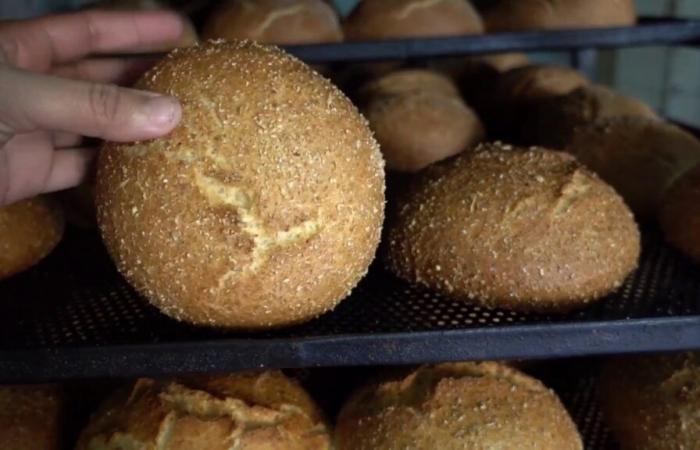Par El Mostapha BAHRI, Economist
A meeting was held on Monday, October 14, 2024, with officials from the Ministries of Agriculture, Interior, Economy and Finance, Trade and Industry, the National Cereals Office and legumes as well as representatives of the National Federation of Bakery and Pastry Owners. The subject focused on the organization of the baking and pastry profession, on the contractual program between the government and the owners of bakeries as well as on the means to be implemented to put an end to informal bakeries, considered by professionals as “unfair competition”[1].
Baking is an activity which has a particularity both in terms of the number of participants in the profession and the problems encountered. Indeed, the nature of the product is particular, due to the fact that it concerns bread, “the symbol of food in Morocco”. In addition, it is an activity characterized by the multiplicity of producers of this product. This activity remains almost barrier-free to entry. It includes the most modern bakeries, both in terms of equipment and qualified staff, located in certain areas with high purchasing power, where quality takes precedence. These bakeries offer different categories of bread (special breads, baguettes, wholemeal bread, multigrain bread, cereal breads, flatbread, sourdough bread, etc.). The question of prices does not arise in these modern bakeries. Next come the bakeries, whose equipment is good, located in more average neighborhoods and where quality is sought after, but with a moderate price. There are also traditional ovens in working-class neighborhoods, which offer inexpensive breads (made from white flour, sometimes mixed with barley semolina or durum wheat flour, the price of which varies between 0 .5 and 1.5 dh, depending on weight). Several of these bakeries also offer viennoises and brioches at affordable prices. Some bread producers operate premises equipped with gas ovens (for bread made from white flour and/or durum wheat flour) which generally supply businesses in certain areas not equipped with bakeries or new neighborhoods under construction. Finally, there are housewives who prepare small quantities of bread (homemade) or traditional cakes (corns of gazelle, briouates, etc.), which they themselves often market in spaces dedicated to this type. products, or even subcontract with bakeries.
Given this multiplicity of stakeholders, the problems are numerous, complex and specific to each category of bread producers. These activities, which provide tens of thousands of jobs, suffer from numerous constraints which affect their organization. However, breadmaking continues from these different angles and the market is not experiencing supply problems.
According to professionals in the sector, the price of a loaf of bread or a baguette, set by the government at 1.20 dh since 2004, poses many problems for rehabilitating production units and increasing their yields due to the increasing rise in prices. production cost. This situation negatively affects the financial balances of the majority of units which are experiencing various and varied difficulties.[2].
It should be noted that in a statement to MAP, the president of the National Federation of Bakeries and Pastries of Morocco (FNBPM), Lhoucine Azaz, raised the question of the consequences of the pandemic which has greatly affected the sector. The latter (bakery sector) recorded a drop in sales linked to preventive restrictions (ban on parties, family reunions, conferences and festivals). He also added that this situation forced a large number of professionals to temporarily cease their activities.[3].
- Azaz also recalled, according to the same source, that the Ministry of Agriculture and Maritime Fisheries has developed a strategic study to diagnose the real situation in the bakery and confectionery sector, in partnership with the FNBPM, and on the basis of this study, the supervisory ministries (Interior, Ministry of Commerce and Industry, Agriculture) proposed a contractual program for the upgrading of the sector, the improvement of profitability and the situation of owners and employees.
It should be remembered in this context that bakeries face other challenges and constraints, the main ones of which are the following:
- Increased raw material costs: bakeries are significantly affected by rising raw material prices, including flour, sugar, and butter. Fluctuating prices for these basic products, often imported, make it difficult to maintain profitability while ensuring competitive prices for consumers;
- Regulation and competition: many bakeries, particularly traditional ovens and other operators, operate without respecting quality and hygiene and labor law standards, which creates unfair competition for compliant establishments;
- Product quality and standardization: the lack of product standardization and the sometimes unequal quality between bakeries impact prices and therefore consumer satisfaction;
- Reliance on electricity, gas and wood: Producing bread and other bakery products requires high energy consumption, making bakeries vulnerable to rising electricity, gas and wood costs. This particularly affects small bakeries, specializing in bread only, which are less able to absorb these increasing costs;
- Low development of human resources: staff in bakeries are often poorly trained, poorly paid and sometimes have difficult working conditions. This lack of development of human resources leads to high turnover, affecting the continuity and quality of the service offered.
- Insufficient financing and public support: small bakeries, which make up a large part of the sector, often have difficulty accessing financing to modernize their equipment or to comply with health standards. Public support remains limited, although the sector plays a key role in employment and the local economy.
All these issues highlight the challenges facing bakeries in Morocco and indicate the need for structural solutions to improve their competitiveness, their sustainability and their ability to meet consumer expectations.
In conclusion, the bakery sector in Morocco faces significant structural constraints, such as increasing raw material costs, energy dependence and low employee recognition. The meeting between managers and professional representatives made it possible to raise these challenges as well as the urgent need for an upgrade program aimed at modernizing production units and standardizing practices. This contractual program with the government appears to be a promising solution to support the sustainability and competitiveness of Moroccan bakeries, by strengthening their resilience in the face of economic fluctuations and preserving a key sector of the local economy.
To upgrade the bakery sector in Morocco, several proposals can be considered in order to respond to structural challenges and improve the competitiveness and sustainability of bakeries in a highly competitive market. The intervention actions are summarized as follows:
- Financial support and access to financing: set up specific credit lines or subsidies to support bakeries, particularly small structures, for the acquisition of modern equipment that complies with quality and hygiene standards. There is also a need to facilitate access to public or private funding for upgrading equipment, training staff and complying with health standards.
- Regulation and supervision of informal bakeries: strengthen inspections to raise awareness among bakeries with a view to getting those operating informally to comply with quality, hygiene and safety standards.
- Standardization and certification of product quality: introduce a quality label or certification that would guarantee the conformity of bakeries to quality and hygiene standards, thus allowing compliant establishments to stand out in the market. There is also a need to encourage product standardization to provide a more consistent experience for consumers and enhance customer satisfaction.
- Training and development of human resources: set up professional training programs for bakers and bakery staff, focusing on new production techniques, business management and compliance with hygiene standards. These actions are likely to improve working conditions and remuneration in the sector to reduce turnover and guarantee constant quality of service.
- Optimization of energy consumption: encourage the adoption of energy-efficient technologies and equipment to reduce dependence on electricity, gas and wood, particularly for small structures more vulnerable to fluctuations in energy prices. There is also reason to explore renewable energy opportunities and subsidy programs for the installation of less energy-consuming equipment.
- Establish a monitoring committee bringing together representatives of bakeries, the ministries concerned and professional federations to monitor upgrade initiatives and assess the needs for financial, legislative or technical support.
These measures, integrated into a concerted upgrade strategy, which does not exclude any (non-exclusive) stakeholder, small or large, could significantly improve the resilience of the bakery sector in Morocco while consolidating its contribution to the economy and to local employment.
[1] Hespress from October 15, 2024.
[2] https://www.mapnews.ma/ from October 7, 2024.
[3] MAP, Op. Cit.
Share this article:







